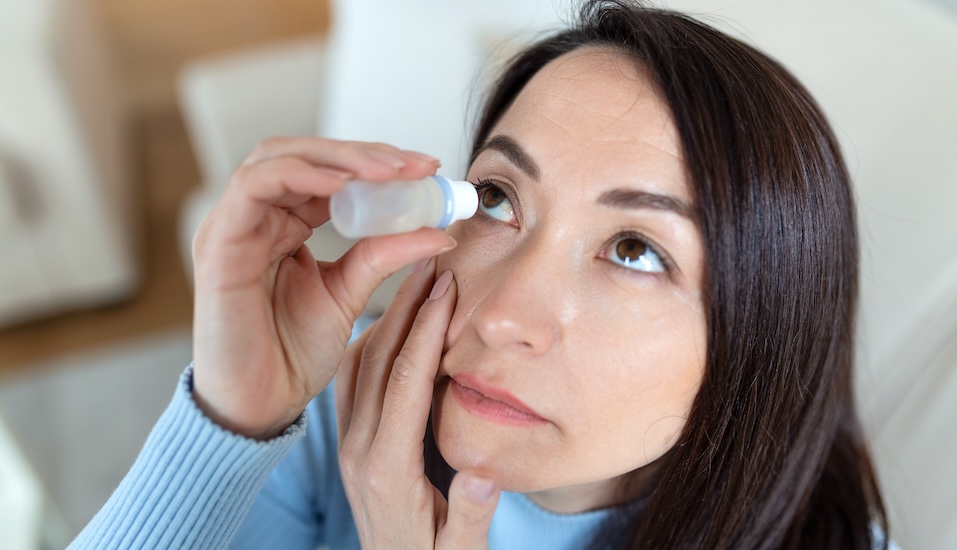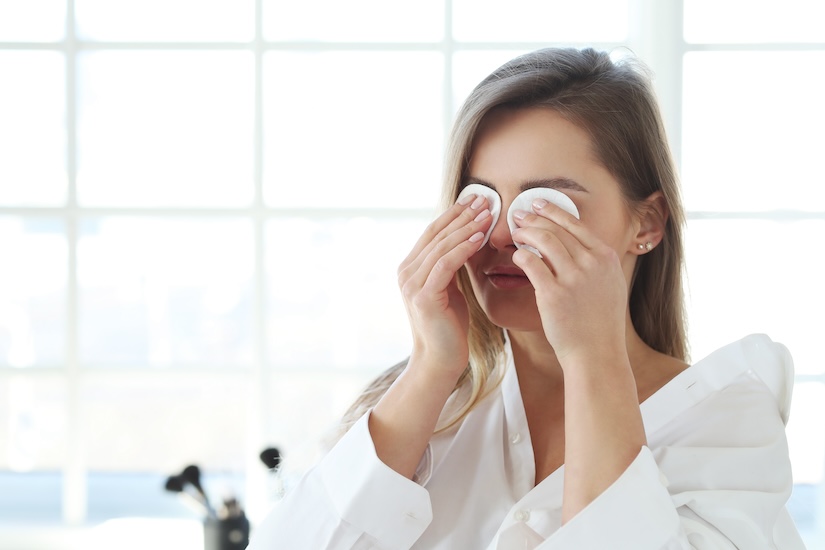In our fast-paced world today, our eyes often bear the brunt of constant exposure to screens, artificial lights, and various environmental stressors. It’s like they’re in the eye of a storm, dealing with things that can leave us with eye fatigue, dryness, and, in more severe cases, age-related macular degeneration. Taking care of our eyes isn’t just about seeing clearly; it’s about ensuring we don’t miss out on the good stuff life offers.
That’s where eye supplements come into play – like little superheroes for our eyes. These supplements are packed with essential nutrients and powerful antioxidants, like a shield for our eyes against potential damage and a boost for overall eye function. While eating well and living a healthy life are the basics of eye care, adding eye supplements to the mix can be that extra something to give your vision the support it needs.
So, in this article, we’re diving into the world of the best eye supplements you can find in Malaysia. We’ll break down the key ingredients, discuss the perks they bring, and highlight any potential side effects. Whether you’re worried about ageing eyes, staring at screens all day, or want to keep your vision in top shape, we’re here to guide you through the options that fit your unique eye care needs.
Understanding Eye Health
Importance of Maintaining Good Eye Health
Our eyes are incredible organs that allow us to perceive and navigate the world. They are the windows through which we learn, work, and relish everyday activities.
It’s no exaggeration to say that maintaining good eye health is paramount for preserving our vision and shielding ourselves from potential eye problems that could lead to significant vision loss. To achieve this, regular eye exams, adopting a healthy lifestyle, and ensuring proper nutrition are pivotal elements in safeguarding our eye health.
Common Eye Problems and Conditions in Malaysia
As per the National Eye Survey Malaysia, the prevalence of visual impairment in the country is 11.1%. The primary culprits behind this statistic are cataracts, refractive errors, and diabetic retinopathy. Cataracts, characterized by the clouding of the eye’s lens, emerge as the leading cause of blindness in Malaysia, impacting around 43,000 individuals.
Refractive errors, encompassing issues like nearsightedness, farsightedness, and astigmatism, are widespread, affecting an estimated 2.2 million Malaysians. Notably, diabetic retinopathy, a complication arising from diabetes, stands as a significant contributor to vision loss, especially among working-age adults in Malaysia.
Role of Nutrition in Supporting Eye Health
A crucial player in the quest for good eye health is a well-balanced diet teeming with essential nutrients. Lutein and zeaxanthin, carotenoids found in dark leafy greens, protect the macula – the central part of the retina responsible for sharp vision.
Meanwhile, Vitamin C, abundantly present in citrus fruits and bell peppers, aids in collagen production, a structural necessity for the eye. The antioxidant prowess of Vitamin E, sourced from nuts and seeds, shields the eyes from damage caused by free radicals. Additionally, Omega-3 fatty acids, especially DHA found in fatty fish like salmon and sardines, are vital in supporting eye health and potentially reducing the risk of age-related macular degeneration.
Incorporating these eye-friendly nutrients into your diet isn’t just a culinary choice; it’s a proactive step toward enhancing your eye health and mitigating the risk of potential eye issues.
Remember, maintaining good eye health involves a holistic approach, encompassing regular eye exams, sound eye care practices, and an overall healthy lifestyle – all contributing factors to preserving your vision and ensuring clear sight throughout your life.
Key Nutrients for Eye Health
Maintaining optimal eye health is not just about seeing clearly; it’s a holistic approach to safeguarding our vision and overall well-being. A crucial aspect of this journey involves ensuring an adequate intake of essential nutrients that protect our eyes from damage and promote their optimal function. Let’s delve into the details of these critical nutrients and understand how they contribute to eye health.
Vitamin A
Essential for vision, especially in low-light conditions. Aids in the production of rhodopsin, a pigment in the retina crucial for seeing in dim light.
Dietary Sources:
- Sweet potatoes
- Carrots
- Spinach
- Kale
- Liver
- Egg yolks
Vitamin C
Powerful antioxidant protecting eyes from free radical damage. It contributes to collagen production, which is vital for the structure of the eye, including the cornea and sclera.
Dietary Sources:
- Citrus fruits (oranges, grapefruits, lemons)
- Bell peppers
- Strawberries
- Broccoli
- Brussels sprouts
Vitamin E
Another antioxidant safeguarding eyes from free radical damage. It supports healthy blood vessels in the eyes and may reduce the risk of age-related macular degeneration (AMD).
Dietary Sources:
- Almonds
- Sunflower seeds
- Avocados
- Wheat germ
- Spinach
Lutein and Zeaxanthin
Carotenoids protect the macula from damage caused by blue light and free radicals. Reduces the risk of AMD and is responsible for sharp vision.
Dietary Sources:
- Dark leafy greens (kale, spinach, collard greens)
- Corn
- Eggs
- Pistachios
- Red bell peppers
Zinc:
Plays a role in various eye functions, including vitamin A metabolism and retinal function. Deficiency can lead to night blindness and impaired vision.
Dietary Sources:
- Oysters
- Beef
- Beans
- Nuts
- Whole grains
Omega-3 Fatty Acids:
Essential for healthy cell membranes, particularly in the eyes. Concentrated in the retina, it plays a crucial role in maintaining its structure and function, potentially reducing the risk of AMD and dry eye syndrome.
Dietary Sources:
- Fatty fish (salmon, tuna, sardines)
- Flaxseeds
- Chia seeds
- Walnuts
- Soybeans
Preventing Night Blindness and Blurry Vision:
Deficiencies in these essential nutrients can contribute to night blindness and blurry vision. Night blindness, marked by difficulty seeing in low-light conditions, can be alleviated by ensuring sufficient vitamin A. Blurry vision, stemming from factors like refractive errors and cataracts, can be combated through a nutrient-rich diet and healthy lifestyle choices.
In addition to consuming these eye-friendly nutrients, maintaining a healthy weight, avoiding smoking, and regulating blood sugar levels are integral to preventing night blindness and blurry vision. Regular eye exams are vital for the early detection and treatment of eye problems, ultimately preserving vision and overall eye health.
Top Eye Supplements in Malaysia

Maintaining sound eye health is essential for preserving clear vision and protecting against eye problems. While a balanced diet rich in essential nutrients is crucial, eye supplements can provide an extra boost of beneficial ingredients to support eye function. Here’s a review of some of the best eye supplements available in Malaysia:
Sappheyer
Sappheyer is a comprehensive eye supplement with powerful antioxidants and nutrients to support eye health and vision. It contains high doses of lutein and zeaxanthin, carotenoids that protect the macula from damage caused by blue light and free radicals. Additionally, Sappheyer contains astaxanthin, a potent antioxidant that may reduce the risk of age-related macular degeneration (AMD). Other key ingredients include vitamin C, vitamin E, zinc, and bilberry extract, all contributing to overall eye health.
Key Benefits:
- Protects the macula from damage caused by blue light and free radicals
- Reduces the risk of age-related macular degeneration (AMD)
- Supports overall eye health and vision
E-Vite (Evite) Eye Care Vitamin
E-Vite (Evite) Eye Care Vitamin is a natural eye supplement formulated with a blend of herbal extracts and nutrients to support eye health and prevent eye strain. It contains bilberry extract, a traditional remedy for eye problems, known to improve blood flow to the eyes and reduce eye fatigue. Additionally, E-Vite (Evite) Eye Care Vitamin contains lutein and zeaxanthin, vitamin C, vitamin E, and zinc, providing essential nutrients for eye health.
Key Benefits:
- It improves blood flow to the eyes and reduces eye fatigue
- Supports overall eye health and vision
- Provides essential nutrients for eye health
VitaHealth Bilberry & Marigold Plus
VitaHealth Bilberry & Marigold Plus is an eye supplement formulated with a combination of bilberry extract and marigold extract to support eye health and vision. Bilberry extract is known for its antioxidant properties and ability to improve blood flow to the eyes. Marigold extract is a rich source of lutein and zeaxanthin, carotenoids that protect the macula from damage.
Key Benefits:
- Protects the macula from damage caused by blue light and free radicals
- It improves blood flow to the eyes and reduces eye fatigue
- Supports overall eye health and vision
SURBEX Eye
SURBEX Eye is a high-strength eye supplement formulated with a blend of lutein, zeaxanthin, and zinc to support eye health and prevent age-related macular degeneration (AMD). It contains 20mg of lutein and 10mg of zeaxanthin, the recommended daily intake for AMD prevention. Additionally, SURBEX Eye contains zinc, which plays a role in vitamin A metabolism and retinal function.
Key Benefits:
- Reduces the risk of age-related macular degeneration (AMD)
- Supports overall eye health and vision
- Provides essential nutrients for eye health
Blackmores Lutein Z
Blackmores Lutein Z is a high-strength eye supplement formulated with lutein and zeaxanthin to support eye health and protect the macula from damage. It contains 10mg of lutein and 2mg of zeaxanthin, the recommended daily intake for healthy vision. Blackmores Lutein Z is accessible from artificial sweeteners, preservatives, and flavors.
Key Benefits:
- Protects the macula from damage caused by blue light and free radicals
- Supports overall eye health and vision
- Provides essential nutrients for eye health
How to Choose the Right Eye Supplement

Selecting the right eye supplement is a personalized decision considering various factors, ensuring it aligns with individual needs and promotes optimal eye health. Here are essential tips to guide you in making the best choice:
1. Consider Your Age
Different life stages may have varying eye health needs. For instance, seniors might benefit from supplements addressing age-related concerns like macular degeneration, while younger individuals may focus on prevention and overall eye support.
2. Identify Specific Eye Conditions
If you have a diagnosed eye condition such as macular degeneration, cataracts, or dry eyes, choose a tailored supplement to address those issues. Look for formulations with critical nutrients proven to support your particular condition.
3. Assess Your Lifestyle
Your daily routine and habits play a role in determining the most suitable supplement. For those frequently exposed to digital screens, supplements targeting eye strain and fatigue may be beneficial. If you spend ample time outdoors, UV protection supplements could be considered.
4. Check Ingredient Transparency
Opt for supplements with transparent ingredient lists detailing the specific vitamins, minerals, and antioxidants they contain. Look for known eye-friendly components like lutein, zeaxanthin, vitamins A, C, and E, zinc, and omega-3 fatty acids.
5. Evaluate Brand Reputation
Research the reputation of the supplement brand. Look for well-established companies with a history of producing high-quality, scientifically-backed products. Customer reviews and professional endorsements can provide valuable insights.
6. Consult a Healthcare Professional
Before introducing any new supplement into your routine, especially if you have underlying health conditions, it’s crucial to consult with a healthcare professional. They can offer personalized advice based on your medical history, ensuring the supplement complements your overall health plan.
7. Personal Sensitivities and Preferences
Consider any dietary restrictions, allergies, or personal preferences. Some supplements may contain allergens or additives unsuitable for specific individuals. Opt for supplements that align with your nutritional choices and restrictions.
8. Trial Period and Monitoring
Start with a supplement for a trial period and monitor how your body responds. Keep track of changes in your vision, overall well-being, and potential side effects. This allows you to make informed decisions about the supplement’s effectiveness for your needs.
Lifestyle Tips for Maintaining Good Eye Health

Along with eye supplements, incorporating certain lifestyle practices is critical to preserving good eye health and preventing vision problems. Here are essential recommendations to reduce eye strain, foster overall eye well-being, and underscore the importance of regular eye check-ups:
Nourish with a Healthy Diet
Embrace a diet rich in fruits and vegetables, particularly leafy greens like spinach, kale, and collard greens. These foods, packed with lutein and zeaxanthin, protect the macula, the vital centre of the retina responsible for sharp vision. Additionally, include omega-3 fatty acids from sources such as salmon and sardines, which are known to potentially reduce the risk of age-related macular degeneration.
Shield from UV Radiation
Safeguard your eyes from the sun’s harmful ultraviolet radiation by wearing sunglasses that block UVA and UVB rays. Excessive exposure to UV radiation poses a risk for cataracts and age-related macular degeneration (AMD).
Reduce Screen Time
Combat eye strain, digital eye fatigue, and dry eyes by taking regular breaks from digital screens. Adhering to the 20-20-20 rule—looking 20 feet away for 20 seconds every 20 minutes—can alleviate strain. Adjusting screen brightness and contrast further contributes to reducing eye discomfort.
Practice Proper Eye Hygiene
Prioritize eye hygiene by frequently washing your hands to prevent the spread of germs to your eyes. Resist the urge to rub your eyes, as it can introduce irritants and bacteria. Follow your eye doctor’s instructions meticulously when cleaning your contact lenses.
Maintain a Healthy Weight
Recognize that obesity is a risk factor for various eye diseases, including diabetic retinopathy and glaucoma. Maintaining a healthy weight significantly reduces the risk of developing these conditions.
Quit Smoking
Acknowledge smoking as a significant risk factor for age-related macular degeneration, cataracts, and diabetic retinopathy. Quitting smoking is a pivotal step in significantly lowering the risk of these debilitating eye diseases.
Manage Blood Sugar Levels
If you have diabetes, diligent management of blood sugar levels is crucial in preventing diabetic retinopathy, a leading cause of vision loss in adults.
Regular Eye Exams
Regular eye exams are paramount for early detection and treatment of eye problems. Your eye doctor plays a crucial role in assessing eye health, identifying signs of eye conditions, and recommending preventive measures or treatments tailored to your specific needs.
Use Protective Eyewear
When engaging in activities that pose a risk to your eyes, such as sports or working with chemicals, prioritize using protective eyewear. This shields your eyes from potential debris, impact, and harmful substances.
Prioritize Your Vision: Take Action for Better Eye Health Today
In the grand tapestry of overall well-being, maintaining good eye health is a crucial thread. Our eyes, the windows to the world, facilitate our experiences, learning, work, and the simple joys of everyday life. Proactively safeguarding and nurturing our eye health becomes paramount, allowing us to preserve our vision, elevate our quality of life, and mitigate the risk of sight-altering eye problems.
Embedding eye care into the fabric of our daily lives becomes a resonating call. From adopting healthy lifestyle habits, including a balanced diet and protective measures against UV radiation, to thoughtfully managing screen time—these practices collectively contribute to a proactive approach to eye health. Equally important is the commitment to scheduling regular eye exams with a trusted eye doctor. Early detection and timely intervention can address potential concerns and ensure the longevity of clear vision.
While lifestyle practices form the foundation of eye care, supplements can serve as valuable allies in supporting eye health. However, the key lies in choosing the right supplement tailored to individual needs. Consulting with a healthcare provider is indispensable before embarking on any new supplement regimen. Among the many options, the best eye supplements in Malaysia offer a targeted boost of beneficial ingredients. Yet, the emphasis remains on personalized choices that align with unique requirements.
In health, our eyes are precious gifts deserving of mindful care. Today’s investments in eye health pave the way for a future adorned with clear sight and a brighter perspective. So, let the significance of eye care echo in your choices, weave it into the fabric of your routine, and embrace the journey towards a future where your eyes continue to reveal the wonders of the world around you.
